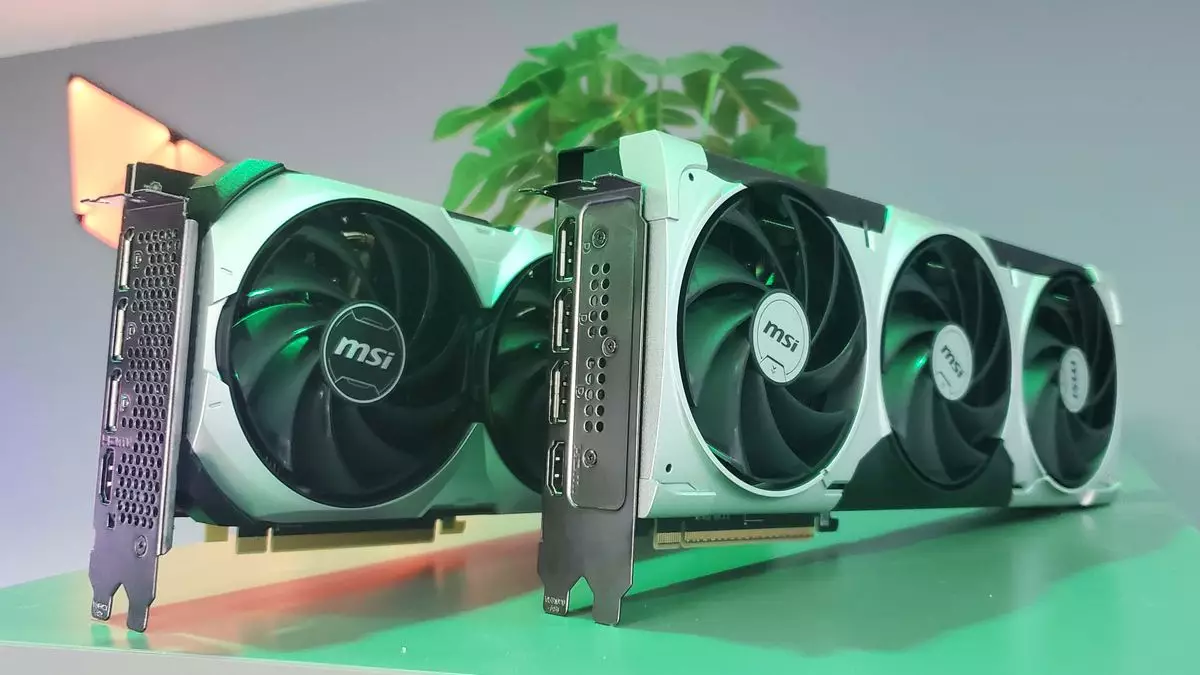The tumultuous landscape of graphics cards has seen many twists and turns in recent years, particularly during the pandemic when demand surged and supply chains faltered. With this context in mind, Newegg’s latest endeavor, the Newegg Shuffle, emerges not merely as a retail mechanism but as a glimpse into the ongoing struggle of gamers and PC builders to acquire premium hardware. The impending releases of Nvidia’s GeForce RTX 5070 and RTX 5070 Ti have reignited interest in this system, which was previously utilized during the scarcity of the RTX 30-series. However, instead of the unconditional ‘Add to Cart’, potential buyers are faced with the uncertainty of a lottery-based system.
The Newegg Shuffle serves as a reminder that while the technology surrounding GPUs continues to evolve, the purchasing experience has become fraught with challenges. Previously seen as a way to equitably distribute highly sought-after graphics cards, the Shuffle hardly alleviates buyer frustration. Prospective customers must now grapple with the idea of entering a lottery for the privilege of paying full price for their desired GPU. The FAQ section on Newegg’s website clearly outlines that entries into the Shuffle come with no guarantee—only a fleeting opportunity. This procedural change raises questions about the effectiveness of lotteries as a means to regulate sales during times of scarcity.
Understanding the Release Strategy
Nvidia’s decision to stagger the launch of the RTX 5070 and 5070 Ti seems like a strategic move aimed at managing supply. However, this leaves consumers wondering about the availability of stock during the actual launch periods. Set to debut at 6 AM Pacific Time on February 20 for the RTX 5070 Ti and March 5 for the RTX 5070, these dates necessitate not only anticipation but also nimbleness in seizing the opportunity as listings go live. The historical context surrounding graphics card launches indicates that even when new models emerge, the challenges of stock levels can still yield significant disappointment for those unable to act fast enough.
One cannot overlook the broader climate affecting the GPU market. The RTX 5090 cards, released earlier, faced a bottleneck in supply due to manufacturing issues. As a result, scalping and exorbitant pricing became commonplace, making it imperative for consumers to stay informed and ready. It’s against this backdrop of unpredictability that the new series emerges. With a fervent community eagerly anticipating the performance tests and benchmarks of the RTX 5070 series, one must question if the lotteries are an adequate solution or merely a bandage on a more systemic issue within the tech supply chain.
Consumer Behavior in an Evolving Market
The sudden shifts in consumer behavior around graphics cards can often feel like participating in a high-stakes gamble. As potential buyers, PC builders are not just looking for cutting-edge performance but are also required to navigate an intricate dance of timing and luck to secure their hardware. The excitement generated by the buzz around the RTX 5070 series is palpable, especially with anticipated comparisons against other high-performance models like the RTX 5080. Yet, the real concern lies in whether the end-user experience will reflect a fair chance at acquisition or devolve into yet another round of frustration.
As we anticipate the arrival of Nvidia’s RTX 5070 and RTX 5070 Ti, the interplay between demand and supply continues to shape the purchasing experience in the world of graphics cards. While Newegg Shuffle aims to streamline access to coveted hardware, the underlying issues of scarcity remain unresolved. For gamers and enthusiasts, staying informed and ready to adapt is key, as the landscape remains dynamic and competitive. Ultimately, as we navigate this tumultuous period, we hope for a resolution that favors fairness and accessibility in the future GPU market.

